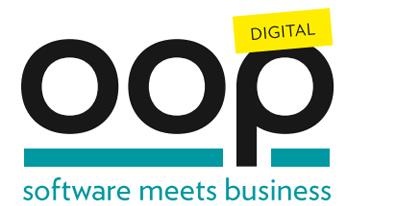
Conference Program
Please note:
On this site, there is only displayed the English speaking sessions of the OOP 2022 Digital. You can find all conference sessions, including the German speaking ones, here.
The times given in the conference program of OOP 2022 Digital correspond to Central European Time (CET).
By clicking on "EVENT MERKEN" within the lecture descriptions you can arrange your own schedule. You can view your schedule at any time using the icon in the upper right corner.
Thema: Artificial Intelligence
- Montag
31.01. - Dienstag
01.02. - Mittwoch
02.02. - Donnerstag
03.02.
Traditionally, requirements were used as a means to communicate between customers and development organizations. Unfortunately, requirements suffer from many limitations.
An alternative approach is to focus on outcomes and to use value modeling as a mechanism to quantitatively define the desired outcomes. This value model can then be used for experimentation by humans using DevOps and A/B testing or using machine learning models for automated experimentation.
The tutorial provides introduction of…
Today Computer vision has taken a significant spot in our phones, our roads, our markets that we don’t always even recognize if and where it is deployed. Nonetheless, our industries today have so much potential to automate (using CV) their recurrent tasks to reduce costs, while simultaneously increasing quality of the product and efficiency of the process itself. We will learn about some interesting industrial examples which benefit first-hand from simple automation and perhaps get inspired by…
The adoption of static analysis of C++ and Java requires that the findings and errors can be prioritised in an efficient way. Our work shows that Machine learning (ML) can support this presentation of static analysis results to end-users. The ML engine learns from the codebase itself, and also observes the violations that the user fixes and which he ignores. The ML uses this to suggest the next best violations to fix, relying on probability of violations to be harmful or most likely to be a…
Maintaining a database containing millions of products can be very challenging, especially when the information you require of these products is subject to changes over time.
We show how we used state of the art Deep Learning methods (such as Transformers, BERT) in connection with smart text matching in order to extract relevant information from free-form text.
We also explain how we leveraged the existing database to create an automatically labelled training dataset.
Our model enables us to…
To continuously deliver IT systems at speed with a focus on business value, high-performance IT delivery teams integrate quality engineering in their way of working.
Quality engineering is the new concept in achieving the right quality of IT systems. Testing only after an IT product was developed is an outdated approach. Built-in quality from the start is needed to guarantee business value in today’s IT delivery models. Quality engineering is about changes in skills, organization, automation…
In large software projects the assessment of the impact of a code change can be a cumbersome task. If the software has grown and shows an evolutionary design there are always unwanted side effects.
Change control boards are established. But on what data do they judge what can happen with the changes? Very often there is the HIPPO syndrome which means it is the highest paid person's opinion.
In this talk we will show you ways to come to a deterministic prediction of the impact, what data you need…
Agile is becoming a standard delivery method adopted by organizations across the globe, according to VersionOne’s 11th Annual State of Agile Report. While 94 percent of survey respondents said their organizations practiced Agile, 80 percent said their organization was at or below a “still maturing” level. There are multiple reasons on why the Agile maturity of the teams are low, but the key one is teams look at Agile as a process change rather than a cultural change.
At Accenture we have been…
Unfortunately, the session is cancelled without replacement.
With AI entering more and more aspects of our lives, scepticism and worries towards this technology are increasing too. Empathy towards basic human needs and a great User Experience can help AI being more widely accepted and used.
But how to get there?
After covering basic UX principles, the talk will deep dive into the fields of trust, transparency and explainable AI.
The goal is to outline a path to a fruitful collaboration and…
I will introduce two AWS services: CodeGuru and DevOps Guru.
CodeGuru Reviewer uses ML and automated reasoning to automatically identify critical issues, security vulnerabilities, and hard-to-find bugs during application development.
DevOps Guru analyzes data like application metrics, logs, events, and traces to establish baseline operational behavior and then uses ML to detect anomalies. It does this by having the ability to correlate and group metrics together to understand the relationships…
For most people, AI means robots taking human jobs or China’s surveillance of its citizens. Despite the hype around it and its image of progress, the real workings of artificial intelligence are not widely understood. Companies are already implementing a web of algorithms to optimize manual business processes. Most of the time, the larger IT organization is not included on the journey. This talk is an overview of how IT leaders can center the development of human teams in a world that is…
Machine Learning appears to have made impressive progress on many tasks from image classification to autonomous vehicle control and more. ML has become so popular that its application, though often poorly understood and partially motivated by hype, is exploding. This is not necessarily a good thing. Systematic risk is invoked by adopting ML in a haphazard fashion. Understanding and categorizing security engineering risks introduced by ML at design level is critical. This talk focuses on results…
